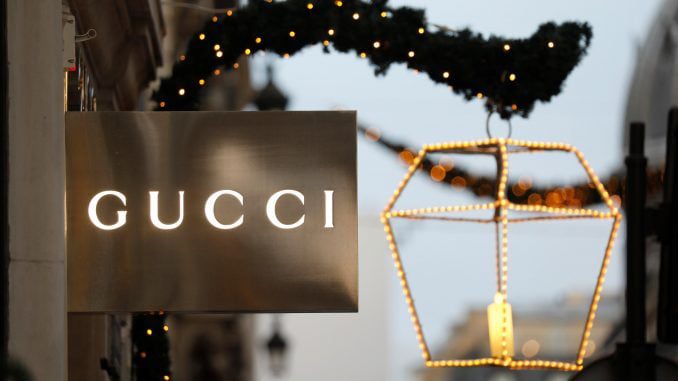
FLORENCE, Italy — It’s all a matter of taste.
Luxury labels are accustomed to tempting fashionistas, and now they’re stretching from haute couture to haute cuisine.
Gucci opened a 50-seat restaurant, Gucci Osteria, in Florence on Tuesday where three-Michelin-star chef Massimo Bottura will serve up high-end dishes.
The Italian fashion house, owned by Kering, is not the only luxury company to foray into food; LVMH announced late last year it would open a second branch of its gourmet grocer La Grande Epicerie in Paris, days before Tiffany & Co. opened its Blue Box Cafe in New York.
“The big brands are following where their high-spending clients’ cash is going,” said Fabrizio Pini, professor and joint director of the International Master in Luxury Management of Milan’s MIP Politecnico business school.
Gucci and its rivals do not expect these investments to yield significant financial returns, for now, but they are seen as a way of enhancing their global brands. In some cases, eateries can also be a way to make the most out of large, city-center store sites as customers increasingly shop online.
The Gucci restaurant is sited behind the walls of the 14-century Palazzo della Mercanzia building, overlooking the city’s most famous square, Piazza della Signoria. Visitors can treat themselves to the likes of Parmigiano Reggiano tortellini, Peruvian-inspired tostadas, pork belly buns and mushroom risotto for 20-30 euros per dish.
Few strategies come without an element of risk, however.
Bernstein analyst Mario Ortelli said that if luxury companies did not provide a gastronomic experience that matched their other goods, it could dilute their brands. “The experience has to be luxurious and recognizable,” he said.
While labels are looking to these investments for marketing rather than profits, a presence in food could offer some financial returns in the long run.
With a global luxury market estimated to be worth 1.2 trillion euros in 2017, sales of luxury wines and spirits and food, together worth just under 120 billion, last year grew 6 percent, more than personal luxury goods such as bags, shoes and clothing, according to Bain & Company’s yearly report on the sector.
“Food is luxury as much as fashion,” said Stefano Cantino, strategic marketing director at Prada, which owns exclusive Milan patisserie Marchesi.
“Barriers have been broken.”
The Gucci Osteria restaurant is part of “Gucci Garden,” which includes an exhibition area, a bazaar-like boutique and a cinema room. “Haute couture and haute cuisine are a recipe made in heaven,” Bottura told reporters.



